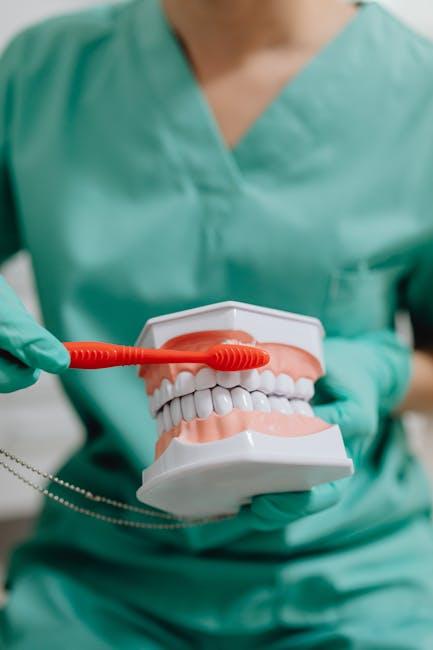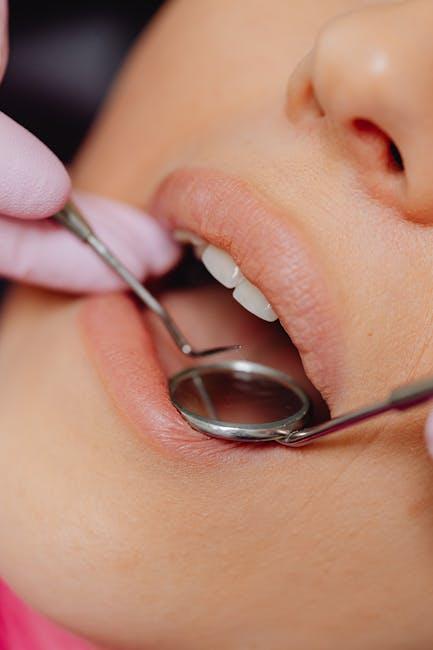
Experts Say Overall Dental Health Is on the Decline Due to Poor Brushing – NBC News
According to recent reports highlighted by NBC News, dental health worldwide is facing an alarming decline, and experts attribute a significant part of this trend to poor brushing habits. While dental care advancements abound, many individuals still fail to adopt effective oral hygiene routines, leading to increased rates of cavities, gum disease, and other oral health problems. In this comprehensive article, we will explore the reasons behind this decline, how poor brushing impacts dental health, and what practical steps you can take to protect your smile.
The Current State of Dental Health: What Experts Are Saying
Dental professionals and health experts have expressed serious concerns about the decline in overall dental health. Poor brushing, in particular, is pinpointed as a major contributing factor. Despite the availability of effective brushing tools and dental hygiene education, statistics reveal that many people still brush incorrectly, too infrequently, or for an insufficient duration.
Some notable findings include:
- Nearly 50% of adults do not brush their teeth twice a day, as recommended by dentists.
- Many individuals brush for less than the suggested two minutes, reducing plaque removal efficiency.
- Improper brushing technique can cause gum damage and leave behind harmful bacteria.
How Poor Brushing Affects Dental Health
Brushing is the cornerstone of oral hygiene, but when done poorly it can cause more harm than good. Inadequate brushing results in plaque buildup, which leads to cavities, gingivitis, and eventually periodontitis if untreated. Here’s how poor brushing habits affect your dental health:
| Dental Issue | Cause Linked to Poor Brushing | Impact on Oral Health |
|---|---|---|
| Tooth Decay | Plaque not removed effectively | Cavities, tooth sensitivity, pain |
| Gingivitis | Gum plaque accumulation | Inflammation, bleeding gums |
| Periodontitis | Untreated gum infection | Gum recession, tooth loss |
| Bad Breath (Halitosis) | Bacteria build-up | Social discomfort, embarrassment |
| Enamel Erosion | Over-brushing or harsh brushing | Tooth sensitivity, discoloration |
Benefits of Proper Brushing for Healthy Teeth and Gums
Maintaining correct brushing habits offers several proven benefits that make it crucial for healthy teeth and gums, including:
- Reduced risk of cavities: Effective plaque removal stops tooth decay before it starts.
- Healthier gums: Prevent gum inflammation and bleeding with proper cleaning.
- Fresher breath: Eliminating bacteria helps you avoid bad breath.
- Longer-lasting teeth: Good hygiene minimizes damage and dental procedures over time.
- Overall health improvement: Good oral health can reduce risks linked to heart disease and diabetes.
Practical Tips to Improve Your Brushing Technique
If you want to combat the worrying trend of declining dental health, start with your daily brushing routine. Follow these expert-approved tips:
- Brush twice daily: Make it a habit to brush your teeth every morning and before bed.
- Use the right toothbrush: Opt for a soft-bristled brush or an electric toothbrush for better plaque removal.
- Brush for two full minutes: Use a timer or an electric toothbrush with a built-in timer to ensure adequate brushing time.
- Use proper brushing technique: Hold your brush at a 45-degree angle and use gentle circular motions rather than aggressive scrubbing.
- Replace your toothbrush regularly: Change your brush or brush head every three months, or sooner if bristles become frayed.
- Don’t forget your tongue: Brush your tongue or use a tongue scraper to reduce bacteria that cause bad breath.
- Floss and rinse: Daily flossing and using an antibacterial mouthwash complement brushing.
Case Study: Impact of Improved Brushing Habits in a Community
In 2022, a community health program in Ohio implemented a targeted educational campaign to teach proper brushing techniques to 1,000 adults. Three months after the campaign, follow-up dental checkups revealed:
| Measurement | Before Campaign | After Campaign |
|---|---|---|
| Percentage brushing twice daily | 52% | 81% |
| Average brushing time | 75 seconds | 110 seconds |
| Reported gum bleeding | 38% | 18% |
| New cavities detected | 27 cases | 12 cases |
This study illustrates that simple education on proper brushing can significantly improve oral health outcomes and reduce dental issues.
First-Hand Experience: A Patient’s Journey to Better Dental Health
Jessica, a 29-year-old teacher, shared how poor brushing habits led to repeated dental issues:
“I used to brush quickly, maybe once a day if I remembered. I didn’t realize how much damage it could do until my dentist found cavities during a checkup. After learning the right technique and making it part of my daily routine, I noticed my gums stopped bleeding, my breath improved, and I haven’t had a cavity since. It’s been a game-changer!”
Jessica’s story confirms the critical role of consistent and proper brushing in maintaining dental health.


